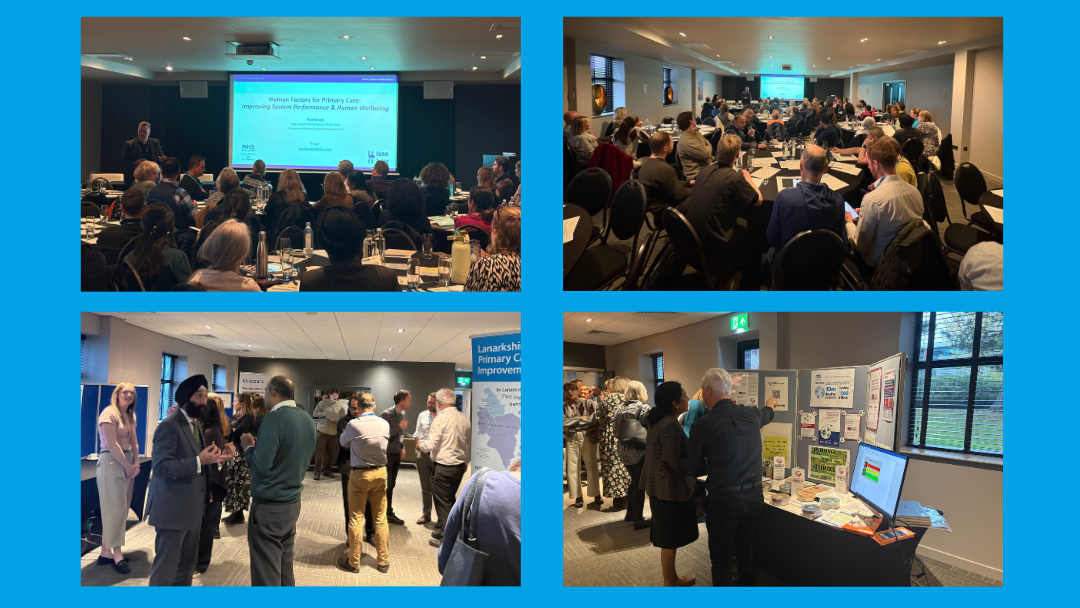More than 70 GPs from across Lanarkshire met last week, to learn about the quality improvement (QI) projects being delivered by local clusters.
These cluster events are held twice a year, in April and October, to share details of the improvement projects taking place across practices and to discuss the findings. There are 18 GP practice clusters across Lanarkshire, which have been supported by the Primary Care Improvement Team (PCIT) for the past three years.
The event’s keynote speaker was Professor Paul Bowie, Programme Director for Safety and Improvement at NHS National Education for Scotland (NES).
Professor Bowie spoke extensively about adopting a human factors approach in primary care and the many tools available to support clusters to undertake their quality improvement activities. Delegates also took part in group activities to complete a human factors case report and use the care system analysis tool.
The event’s agenda also included an overview from primary and secondary care on how a human factors approach is being applied in NHS Lanarkshire and an update from Clydesdale North and Cambuslang clusters on their quality improvement journeys.
Delegates also had the opportunity to visit a number of stalls, to find out more about the Primary Care Improvement Team, Pharmacotherapy, LIST services from Public Health Scotland, antimicrobial prescribing and the Accurx team (supplier of our new digital patient access system, recently made available to practices).
Dr Veronica Rainey, Associate Medical Director, South Lanarkshire University Health and Social Care Partnership, said: “I would like to thank everyone who took time out of their busy schedules to attend our event. It’s so important to share learning from the improvement projects to support our GP clusters help drive forward service improvements.”
Any cluster can request support from the PCIT for quality improvement projects they would like to explore, by emailing LanPCIT@lanarkshire.scot.nhs.uk
The PCIT also delivers the Scottish Improvement Foundation Skills (SIFS) programme, which is a seven-week course to help develop and strengthen the QI skills, knowledge and confidence to contribute to service improvement. To find out more about SIFS and to register for the upcoming cohorts, visit the dedicated webpage.



